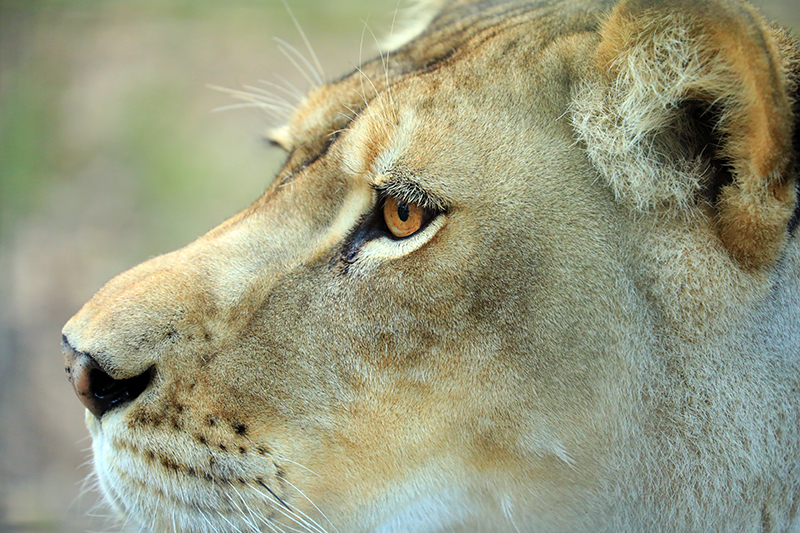Lion on the Menu
Lion on the Menu
Every few months some bonehead thinks it might get them some publicity to offer up lions on the menu. This month it is Taco Fusion offering Lion tacos. News at 11 on most Tampabay channels. The reporter I just talked to said the taco joint’s owner says the lions are raised on a farm in Ft Lauderdale, FL and then sent to CA to be packaged. I told the reporter he will never find such a farm because it doesn’t exist. The lions who are butchered are more likely the castoffs from the pay to play trade. I suggested he talk to USDA and the FWC to learn that there are no lion farms breeding for human consumption and no inspections done of lion meat. Yesterday Taco Fusion said they had sold out of lion meat and wouldn’t be offering it again, but now the reporter says they have changed their mind.
If you want to put an end to this atrocity, please sign up for our newsletter by sending any of the letters to protect big cats at CatLaws.com and we will let you know when the Big Cats and Public Safety Protection Act is reintroduced so that you can speak up for the lions.
Does USDA Inspect Lion Meat?
Success in Ending Lion Meat on the Menu
The U.S. Fish & Wildlife Service’s Position on Lion Meat
“Richard Czimer owns and operates Czimer’s Game and Seafood in Homer Glenn, about an hour from Chicago. Last year, he told a reporter that his cuts of big cat come from a man who runs a skinning operation and delivers him the leftover meat.
When asked where the pelt trader gets his lions, Czimer said, “I wouldn’t have any idea…. He has his sources, and I do not infringe on his business, just as he does not infringe on mine.”
Czimer declined to talk to The Daily, but a special agent at the Fish and Wildlife Service, based in Springfield, Ill., said he knows Czimer and where his lions come from.
“There’s no such thing as lion farms,” said Tim Santel. More often it’s “a woman living paycheck to paycheck in a trailer home who keeps her lion in a chain-link fence.”
“I don’t think the majority of people understand how widespread this is in the United States,” added Santel. “You could have these dangerous animals living right next door to you and not even know it.”
Santel says there are a variety of ways to start a private collection, including auctions, catalogs, and online retailers.”
“African lions are not endangered, so the meat is legal to sell, but deeper investigation reveals the market for the king of the beasts is part of a mostly unregulated and shady exotic animal trade that the U.S. Fish and Wildlife Service says is a multibillion-dollar industry.
Savenor’s wouldn’t disclose its source, except to say that the meat comes from Illinois. Another lion meat retailer, ExoticMeatMarket.com, offers a similar account: “Our African lions are raised in the state of Illinois.”
There is reason to worry. The Illinois man who supplies nearly all the lion meat in the United States has been busted in the past for passing off meat from endangered animals, such as Bengal tigers, as meat from legal species, including African lions.”
https://www.thedaily.com/page/2011/05/29/052911-news-lion-meat-1-5/
Scientific American Points Out What Should Be Obvious
The mane course: This month, restaurants on both coasts caught flack for offering specials on lion cuisine. Happily, the establishments received so much heat from the public that they quickly discontinued the menu items. Still, these sorts of incidents may lead the public to believe that the big cats are thriving to the point where we can turn them into tacos. (Lion tacos go for $35, in case you were curious.) The new fare also raises concerns about where this meat is coming from and how safe it might be. The FDA doesn’t inspect lion meat, and one of the potential origins for it may be the unknown number of lions living in “backyard pens, roadside zoos and other less-than-desirable circumstances” here in the United States. Without more information, it’s impossible to know the condition of such animals, which means the adventurous sampler of lion skewers could be eating meat from ill or heavily medicated lions. Basically, there’s nothing good about lions on the menu. Scientific American
Big Cats on the Menu
This page was devoted primarily to pending changes in Florida’s captive wild animal rules, but even if you are not from Florida, this could make a big difference where you live because Florida currently produces more big cats than any other state. These cats are hauled all over the country, and sometimes even to foreign countries where people are not as concerned with protecting animals.
When the cats cats can no longer be used to support their owners they are often dumped along the way; sometimes into the hands of unwitting exotic pet owners, sometimes they are served up in restaurants and sometimes they are dumped into the wild with no survival skills. Ending the trafficking of exotic cats in Florida will greatly reduce the number of these cats who end up suffering in all parts of the world.
The comment period on these proposed rules closed at 5PM on July 4, 2008, but this sort of egregious behavior just has to stop.
Please mail or email your comments about lions being served on the menu in Florida to the following:
Spoto’s Steak Joint c/o owner/chef Jim Stewart1280 Main StDunedin, FL 34698(727) 734-0008www.spotossteakjoint.com
Reporter Tamara El-Khoury
490 First Avenue SouthSt. Petersburg, FL 33701tel-khoury@sptimes.com(727) 445-4181
| FL Wildlife Conservation Commissionc/o Captain Linda Harrison620 S. Meridian StreetTallahassee, FL 32399-1600RuleChanges@MyFWC.com | |
| St. Pete Times Editor490 First Avenue SouthSt. Petersburg, FL 33701https://www.sptimes.com/letters/(727) 893-8111 | Contact your lawmaker by your zip code HERE |
This story ran July 5, 2008 on the cover of the Tampa Bay Times and was a half page cover story in the Clearwater Times which are all part of the St. Pete Times.
Care for a Tasty Lion Chop?
By: Tamara El-Khoury
DUNEDIN — I’ve sampled snails in France, pig’s ear in Brazil and stuffed lamb intestines in Lebanon. But I experienced my most exotic culinary adventure last week in Dunedin, FL at Spoto’s Steak Joint.
A reader had called, pointing out that the restaurant’s marquee advertised African lion, rattlesnake, bison, elk and boar.
Along with summer intern Jackie Alexander, I was sent to try it out. And, as it happens, I was a good choice for the assignment. As a Lebanese-American I know what it’s like to eat “different” foods. I was the kid eating a brie and pita bread sandwich or stuffed grape leaves for lunch.
I learned not to judge foods until I had tasted them. Having done just that at Spoto’s, here’s my verdict:
The elk was fabulous.
The kangaroo sweet.
The lion tasted a bit like ribs.
(We’ll get to the rattlesnake later.)
We started with the Game Sampler for $25.95, which comes with generous helpings of kangaroo, boar and rattlesnake. But we substituted elk for the snake. The meal was served with steamed asparagus and roasted garlic mashed potatoes.
We also ordered the South African Lion Chop dish, a 14-ounce lion rib chop, char grilled for $48.
Spoto’s owner and chef Jim Stewart said all his game is farm raised and USDA approved. The kangaroo is from Australia and the lion is farm raised in South Africa and processed in Colorado. The snake and boar come from Texas and the elk comes from Alaska, Canada or New Zealand.
Stewart has built a niche out of serving unusual meats. Previous menus have included ostrich, bear and python. He sends e-mails to 1,000 patrons when he serves a new type of game.
“Gosh, where else can you go and get barbecue prime ribs, steak … duck and lion or bear or whatever at any given time?” he said. “We’ve kind of built ourselves a little name for that, and it’s caught on.”
After munching on chicken liver pate, warm baguettes and salad, our dinners arrived. We were both surprised.
“It looks like regular food,” Jackie said.
First, I tried the kangaroo. It was sweet and easy to chew, unlike any other meat I’ve tried. Then the elk, my favorite, which was so tender, Jackie commented it was better than filet mignon. The boar tasted a little heavier than roasted pork.
Finally, it was time to try the lion. The meat was less tender than the others and came with part of the bone, making it difficult to cut. The taste is difficult to describe, sort of a cross between pork chops and ribs.
Pleased with our delicious meal, Jackie and I were ready to wrap things up when photographer Joseph Garnett noted that we had not tried the rattlesnake.
No, I said.
Snakes scare me. I didn’t want one near my mouth. Then Joseph used the “w” word — wimp. So I ordered a small side of snake. I asked that it please not look like snake.
“Snake, snake!” a child chanted in the background.
I made small talk to hide my nervousness, and when the dish arrived, my heart was pounding. It looked like snake. Bones poked out through the meat. Before I could panic, Stewart handed me a fork. I closed my eyes and dug in.
The meat was chewy and had a bland taste, kind of like turkey. It was dressed in a light barbecue sauce that had a little kick to it. If I hadn’t psyched myself out, I might have taken another bite.
If you are wondering how it is that lions end up on the menu then you may be interested to know that despite many baby lions being bred in the US for photo ops and petting booths, they very rarely end up in need of rescue, like tigers do. Lions are not a protected species and can end up in canned hunts. We contacted a man in So. Africa and asked him if there was any connection between the pay-to-play-with-lions activities that are such popular tourist attractions in Africa and this was his response:
You are quite correct that such lion meat can only have come from the
canned lion hunting industry in South Africa. All captive lion
breeders in SA sell their progeny for hunting because it is not only
the only market for them, but a very lucrative one. And they are
always looking for ‘add-ons’ whereby they can commercially exploit
another aspect of canned lion breeding. The current one is cub-
petting, whereby the cute and cuddly stage is exploited before the
animal is old enough to be hunted. In this way they can externalise the cost of rearing the victim. And now lion meat is being marketed to make canned lion breeding ever more profitable.We have video footage of canned lion hunts in SA and they are part of
an audio-visual presentation on DVD which details the cruelty, and
offers insight into how and why canned hunting is so big in SA. It
eems to us that we really need to expose the link between this type
f restaurant and the horrific cruelty at every stage of the lions
lives once caught up in this awful industry. Let us try to turn this
report to advantage, and to use it to raise public awareness in
Florida/USA so that ethical customers will know to boycott such restaurants. Ideally there should be protests outside the restaurant to attract publicity.Kind regards,
Chris Mercer
Campaign against Canned Hunting
www.cannedlion.co.za
PO Box 356 Wilderness
6560 South Africa







This is horrible. Just saw a news show talking about this. Had to Google it to see if it was true.